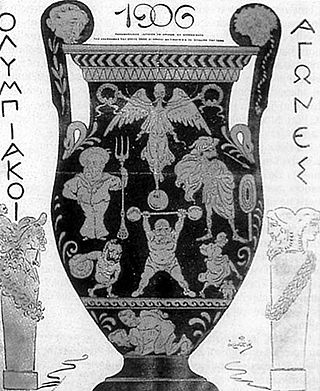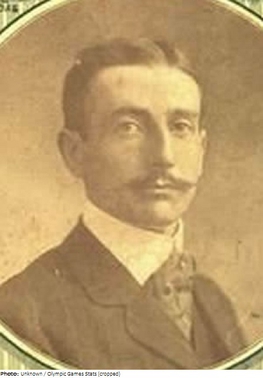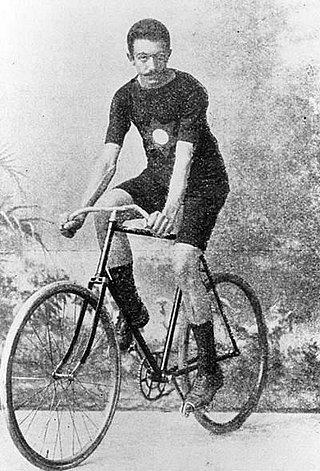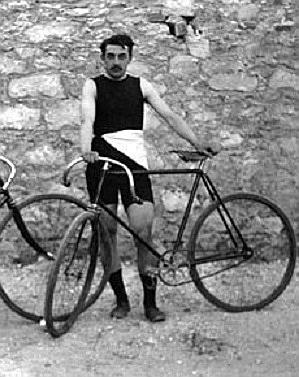
The 1906 Intercalated Games or 1906 Olympic Games, held from 22 April 1906 to 2 May 1906, was an international multi-sport event that was celebrated in Athens, Greece. They were at the time considered to be Olympic Games and were referred to as the "Second International Olympic Games in Athens" by the International Olympic Committee (IOC). However, the medals that were distributed to the participants during these games were later not officially recognised by the IOC and are not displayed with the collection of Olympic medals at the Olympic Museum in Lausanne, Switzerland.

At the 1906 Summer Olympics in Athens, an unofficial football event was held. Only four teams competed, with three of them being clubs from Greece and the Ottoman Empire. Medal tables list the gold medalist as Denmark, with the silver medals given to a mixed team from Smyrna, and the bronze medalists from Thessaloniki listed as Greece. Both were cities in the Ottoman Empire at the time.
At the 1906 Summer Olympics in Athens, 21 competitive events in athletics were held. A total of 65 medals were awarded. Now called the Intercalated Games, the 1906 Games are no longer considered as an official Olympic Games by the International Olympic Committee (IOC).
At the 1906 Summer Olympics in Athens, eight events in fencing were contested, all for men only. Now called the Intercalated Games, the 1906 Games are no longer considered as an official Olympic Games by the International Olympic Committee.
At the 1906 Summer Olympics in Athens, four gymnastics events were contested, all for men only. Now called the Intercalated Games, the 1906 Games are no longer considered as an official Olympic Games by the International Olympic Committee.
At the 1906 Summer Olympics in Athens, sixteen events in shooting were contested. Now called the Intercalated Games, the 1906 Games are no longer considered as an official Olympic Games by the International Olympic Committee.
At the 1906 Summer Olympics, only four swimming events were contested. Now called the Intercalated Games, the 1906 Games are no longer considered as an official Olympic Games by the International Olympic Committee.

Two athletes, both men, competed under the Egyptian banner at the 1906 Intercalated Games in Athens, Greece, and took part in five events across three sports. Arthur Marson, a track and field athlete, did not place within the top six in the 5 mile and failed to finish the marathon. Eugenio Colombani competed in cycling and Greco-Roman wrestling, but did not reach the finals of either event. Egypt, therefore, did not win any medals at the Games.

The discus throw is one of four track and field throwing events held at the Summer Olympics. The men's discus throw has been present on the Olympic athletics programme since 1896. The women's event was first contested at the 1928 Olympics, being one of the five athletics events in the inaugural Olympic women's programme.

Pistol dueling was a sport at the 1906 Intercalated Games and 1908 Olympics.
Charles Pierre Victor Delaporte was a French rower and cyclist.

Marcel Meyer de Stadelhofen was a Swiss judge and shooter. He won two gold medals and a bronze medal at the 1906 Intercalated Games in Athens.

The road race is one of two road bicycle racing events held at the Summer Olympics, the other being the time trial. The road race is a mass start, distinguished from the separate starts of the time trial. The men's road race was first held at the 1896, was not held again for 40 years, then has been held every Summer Games since the 1936 Summer Olympics. The women's event was first contested at the 1984 Summer Olympics, being the first women's cycling event.

The track time trial is a defunct track cycling event formerly held at the Summer Olympics. The event was first held for men at the first modern Olympics in 1896. It was not held again until 1928, when it became a consistent part of the programme and was held every year from then until 2004, after which the event was eliminated. A women's version was added in 2000, being held only twice before being eliminated along with the men's event after 2004. The distance of the time trial was one kilometre for men and half a kilometre for women.

The individual sprint is a track cycling event held at the Summer Olympics. The event was first held for men at the first modern Olympics in 1896. It was held again in 1900, but not in 1904 when various races at different distances were conducted. The men's sprint returned to the programme in 1908 but was again omitted in 1912, when only road cycling competitions were held. After World War I, the men's sprint returned to the programme for good in 1920 and has been held every Games since. The women's sprint was added when women's track cycling was first held in 1988 and has been held every Games since.







